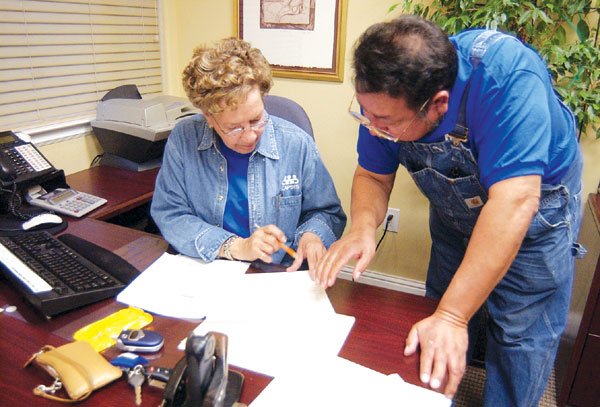Gilroy
– Santa Clara County’s first major mail-in ballot election is a
$1.8 million act of
”
desperation
”
by a library system facing debilitating funding cuts
Gilroy – Santa Clara County’s first major mail-in ballot election is a $1.8 million act of “desperation” by a library system facing debilitating funding cuts.
“It sounds like a lot of money, but it’s a reasonable investment given the loss of revenue and library services,” County Librarian Melissa Cervantes said Tuesday.
The $1.8 million is the price the Library District Joint Powers Authority must pay the county registrar of voters to host the election. Because the ballot is a special election solely for the benefit of the nine county libraries, the JPA must bear the full cost of the process. The JPA has spent about $65,000 on polling and consultants.
The mail-in ballot will have two questions. Measure A would extend the present annual tax of $33.66 for another ten years. Measure B would assess each parcel an additional $12 a year. Librarians say the renewal is needed to maintain what is a steadily deteriorating financial outlook. The additional levy would allow the system’s nine libraries to reopen on Mondays and restore cuts to the libraries’ books and materials budgets.
For Measure B to pass, Measure A must also pass. If Measure A fails, a parcel tax that raises $5.4 annually for the library system will expire at the end of June. That revenue is ever more critical because libraries have lost some state funding and revenue from vehicle registration taxes. Last year, a $1.1 million budget shortfall forced all nine libraries to close on Mondays.
If Measure A fails, Cervantes said the county system will lay off at least 10 percent of its employees. The libraries in Gilroy and Morgan Hill could be open as few as 30 hours a week. As recently as September, the Gilroy Library was open 54 hours a week.
“If the JPA decided to spend a lot of money it’s because the situation is desperate,” said Connie Rogers, a former Gilroy city councilwoman who’s helping organize the local campaign in support of the measures. “Sometimes it just has to be done. Having the library open is more important than anything else.”
The election will leave about $2.4 million in JPA coffers. Cervantes said the reserves are left over from a few years in the late 1990s when property tax revenue exceeded expectations.
“The board was prudent in its judgment not to ramp up services when it was probably a one-time source of revenue,” Cervantes said. “It’s proven to be the case, and that’s why we haven’t had deep cuts until now.”
The JPA board voted unanimously to hold the ballot in May because it had little choice but to take on the full cost of the election. The next time it could have appeared on what’s known as a consolidated ballot is in November, three months past the August deadline for the levy to appear on next year’s tax bill.
The mail-in ballot is a strategic move by the JPA. The key to gaining the two-thirds majority the measures need to pass is high voter turnout. Historically, single-issue special elections have attracted only 12 percent of registered voters to polling places. Cervantes said she expects 40 percent of the 211,000 voters who will receive the ballot to return it by mail.
A year ago, a measure on the presidential primary ballot that combined a parcel tax renewal and an additional levy for materials failed by six percentage points. Election law prohibited the measure from appearing again on November’s general election.
Registrar of Voters Jesse Durazo said that 78 percent of voters who requested absentee ballots for that election returned their ballots. He said the library ballot may mirror those results.
“We’re excited as can be about this trend,” Durazo said of the JPA’s decision to use a mail-in ballot. “It’s very convenient and allows people to vote over a period of time as opposed to one day. That’s the benefit of an absentee ballot.”
Ballots will be mailed to voters on April 4 and must be returned by May 3. The last day to register for the election is April 18. Supporters hope the mail-in election will play in their favor by allowing them to track the voting. Rogers said canvassers will spend the month of March calling voters. Those who promise to vote yes but haven’t mailed in their ballots by late April will get a second phone call reminding them to vote.
The nine libraries are located in Gilroy, Morgan Hill, Milpitas, Los Gatos, Saratoga, Cupertino, Monte Sereno, Campbell and Alum Rock. Each community is mounting a separate Support Our Libraries campaign. Together, the cities are hoping to raise $250,000 for a series of informational mailings and supplies. To date, campaigners have solicited about $100,000.
Rogers said the Gilroy operation has so far worked without a budget. Volunteers are calling voters and talking to patrons at the library, even on Mondays when the building is closed. In the hour she was at the library this past Monday, Rogers said about 15 people showed up, thinking it was open.
Campaign consultants advised supporters that they need to get about 400 people a week in each city to pledge to vote yes on the measures to have a chance at success. Rogers said that almost everyone she’s talked to has expressed support.
“We’re getting a really good response,” Rogers said. “I would say 90 percent of the people are in favor of both Measure A and Measure B, very few are undecided, and I can count the ‘no’s’ on one hand.”
Library campaign costs
• $1.8 million to get the measures on the ballot
• $65,000 for polling and consultants
• $250,000 for printing, postage and supplies
Financial impact of library tax
• Measure A renews an existing annual $33.66 parcel tax for 10 years
• Measure assesses an additional $12 tax
per parcel















